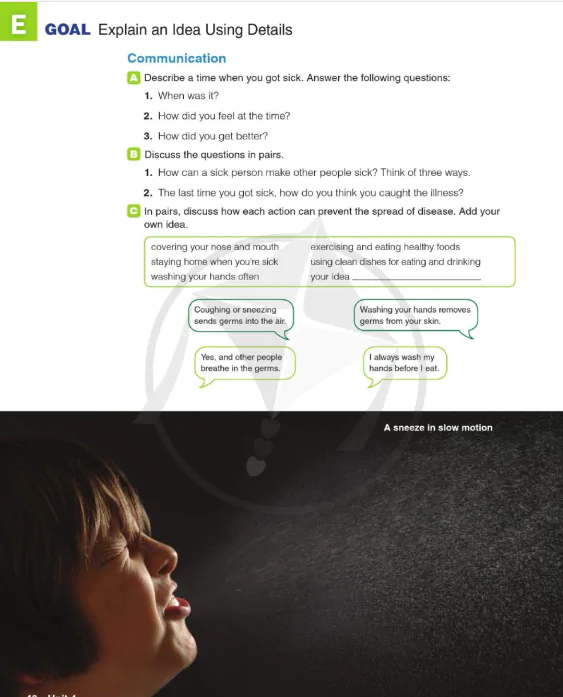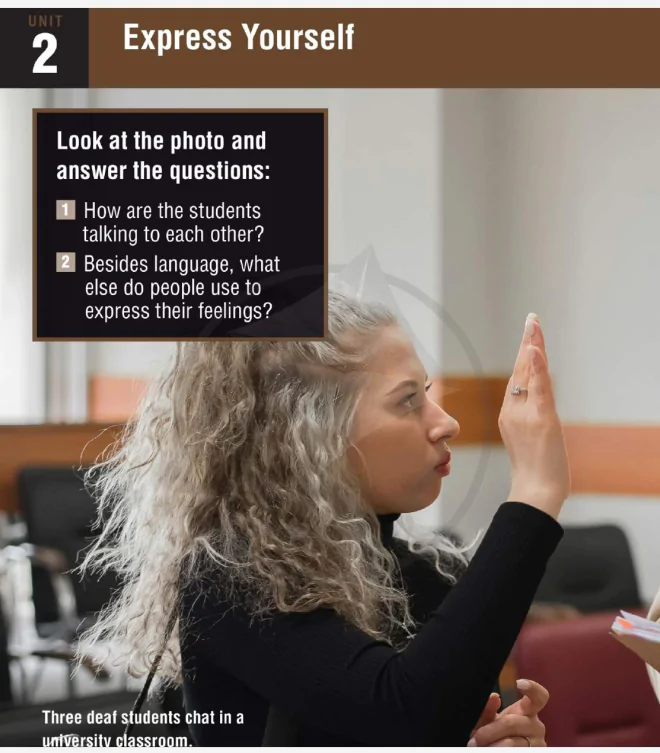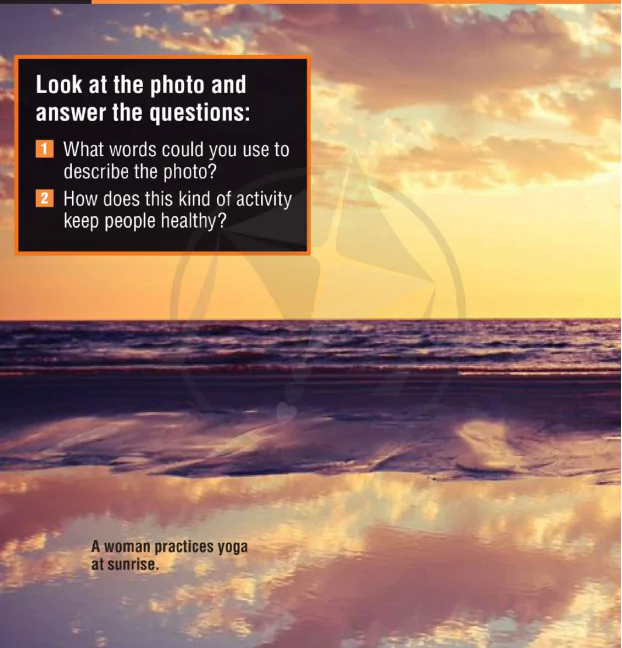Nội Dung Chính
(Page 46)
D GOAL Describe the Benefits of a Positive Attitude
Reading 🎧21 (Optional)
A Tell a partner what makes you feel a lot of stress.
| going to the doctor or dentist meeting new people speaking to a group taking an important exam traveling by car, plane, etc. your idea ______________ |
B Read the text. Circle the correct options.
1. What is the main idea of the text?
a. Common sources of stress in modern life
b. The importance of attitude in dealing with stress
c. Helping others as an enjoyable activity
2. What was true about the study at the University of Wisconsin?
a. Researchers asked questions about the participants' beliefs about stress.
b. All of the participants were alive eight years later.
c. Its number of participants was the highest among three studies.
3. Which study focused on stress and the interaction between people?
a. The University of Wisconsin study
b. The Harvard University study
c. The University of Buffalo study
C Circle T for true or F for false. Then correct the false statements to make them true.
1. For the University of Wisconsin study, participants were asked two questions. T F
2. The way you think about stress affects how your body reacts to stress. T F
3. Stress always causes blood vessels to become narrower. T F
4. People who had a lot of contact with others had a higher risk of dying. T F
D Complete the list of dos and don'ts with information from the article.
1. Don't believe that _________________________________________________________
2. Do believe that signs of stress ____________________________________________.
3. Do spend a lot of time ____________________________________________________.
✔️GOAL CHECK
Form a small group with 2-3 other students. Discuss the questions.
1. What do you remember about the three research studies?
2. In each study, why were the participants' attitudes important?
3. Talk about a time when a positive attitude helped you in some way.
(Page 47)

Appreciating the beauty of nature can help foster a positive attitude.
Attitude Is Everything
Kelly McGonigal is a health psychologist with some good news: Stress may not be the enemy of good health. McGonigal came to this conclusion after looking at three important health studies. In the first study, researchers at the University of Wisconsin asked 30,000 adults how much stress they had experienced. They also asked whether the participants thought this stress was harmful to their health. Eight years later, one group of participants was 43% more likely to have died- the people who had a lot of stress and believed that stress was bad for them. Those who had a lot of stress but did not believe it was harmful actually had the lowest risk of dying!
According to McGonigal, the way we think about stress is important. In fact, our mind and attitude can have beneficial effects on our health. In a study at Harvard, researchers taught participants to believe that signs of stress-a faster heartbeat, for example-were the body's
way of preparing them to meet a challenge. Under stress, most people's blood vessels become narrower. That makes it harder for blood to flow, but the blood vessels of the study participants stayed open and relaxed, simply because they thought about stress in a different way.
McGonigal also points to a study of the connection between stress and human contact. Researchers from the University at Buffalo studied people who had experienced very stressful events. Surprisingly, if they had spent a lot of dying. It seems that enjoyable activities such as
time helping others, they had no increased risk of
giving a friend a ride or babysitting a neighbor's child can help us stay healthy even under stress.
enemy (n) the person(s) on the opposite side in a struggle
participant (n) a person who volunteers for a research study

























Bình Luận
Để Lại Bình Luận Của Bạn